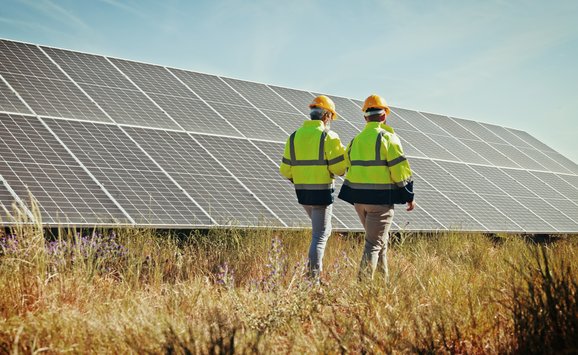In November 2018, RFF and the Alfred P. Sloan Foundation will co-host a conference in Washington highlighting the need to examine energy and environmental issues from multidisciplinary and systemic perspectives.

On November 29-30, Resources for the Future (RFF) and the Alfred P. Sloan Foundation will co-host a conference, Energy Research Insights for Decisionmaking, in Washington, DC. The event will bring together scholars and practitioners interested in both understanding the latest natural and social science research on a range of energy and environmental topics and identifying implications for the government, industry, and nonprofit sectors. By bringing together these varied stakeholders, the conference will highlight the need to examine energy and environmental issues from multidisciplinary and systemic perspectives. It also aims to identify new opportunities for cross-cutting research. Several guiding principles have helped direct the planning and structure of the event.
1. A Focus on the Intersection of Research and Decisionmaking
Both the Sloan Foundation and RFF are dedicated to supporting and undertaking research applicable for policy and other areas of decisionmaking related to the energy sector. The agenda for the conference hones in on topics where energy research is quickly evolving and where linking the insights from that research can lead to better policy outcomes, market designs, consumer incentives and benefits, and more.
This principle spurred the development of the following sessions planned for the conference (among others), centered on the topics below:
- Energy efficiency, where evidence from randomized control trials is helping to shed light on consumer behavior and guide utility programs;
- The social cost of carbon, where new research from RFF, the Climate Impacts Lab, and others is informing updates to this economic measure used for federal regulatory rulemaking and other decisionmaking processes;
- Energy infrastructure development, which continues to be highly controversial on a local level even as governments are seeking regulatory reform to siting processes; and
- Emerging energy technologies, which have the potential to reshape markets and require new regulatory frameworks.

2. An Eye on the Horizon
The conference is designed to highlight what we already know or have recently learned, but discussions will also prompt exploration of issues “over the horizon” that researchers, policymakers, industry representatives, public sector organizations, and the funding community should have on their respective radars.
This convening will take place just three weeks after the US midterm elections, the outcome of which will undoubtedly have significant import for energy and climate policy in the United States. Will states and cities continue to lead? Will Congress act? How can insights from the research community foster stronger decisionmaking processes under any outcome?
3. A Commitment to Diversity
The conference has been planned with diversity in mind, in terms not only of gender and race but also with regard to sectoral representation, political ideology, and geography. Solutions to today's energy and climate challenges—and the creativity required to unearth, develop, and manifest feasible options—require bringing all minds and perspectives to the table.

Given space limitations, the conference itself is by invitation only—but we are also planning for opportunities for a wider audience to engage with various speakers from this event and to continue dialogue sparked from different sessions. For questions about the conference, please contact Kristin Hayes, RFF’s Energy and Climate Program Director, at [email protected].









